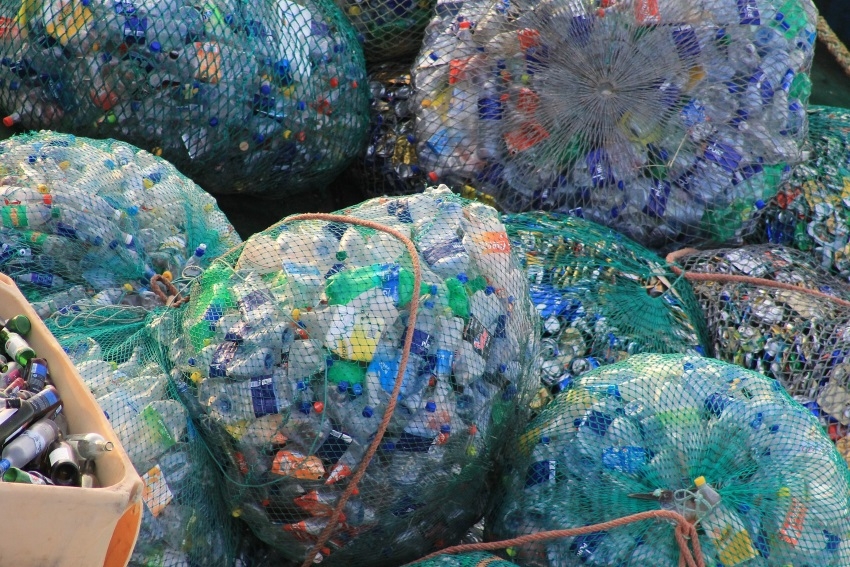Reading comprehension - Intermediate level
So what can we do? Don't delay! Make your contribution to cleansing the oceans by taking these simple steps from TODAY!
• Make a promise to stop using individual disposable plastic bottles. Save money and the environment by carrying your own multi-use water bottle filled at home, or drink only from bottles you know can be recycled. Currently, 500 million plastic bottles are used worldwide every year.
• Avoid buying your hot drinks in plastic cups. Purchase a reusable mug or 'keepcup', choosing from the many attractive designs on the market with handy matching lids. Some events, festivals and many coffee shops will even give you discounts on hot drinks for bringing your own cup. Plus, they are ideal to take with you for long car journeys as they often keep your drinks warm for longer. A personal keepcup would make a thoughtful gift for a friend, too.
• Refuse plastic straws. Either request paper straws for your soft drink or cocktail, or simply drink straight from the glass or cup. In the US and UK alone, 50 million used-once plastic straws are thrown away each day of the year...
• Don't be tempted to buy plastic bags at the shops or the supermarket to carry home your purchases. Buy your own reusable canvas bag showing your favourite artwork, band or slogan. It's a fun way to express yourself as well as being environmentally friendly. You will avoid adding to the shocking figure of one trillion plastic bags put into landfill every day across the globe.
• Say no to chewing gum! It is made of synthetic rubber which is actually another plastic. If you want to freshen the breath, substitute a flavoured sweet or plastic-free gum brands like Glee or Chewsy. Be strong! This will help reduce the 100,000 tons of planet-polluting chewing gum thrown away each year worldwide. Alternatively, if you are spending time in the UK or Denmark, look out for special Gumdrop bins which are being provided in more and more cities to collect used chewing gum. These bins are actually made from recycled gum and the raw material they collect is used to manufacture more bins. The process is designed to educate and inspire the public into giving gum a second life. You can get in touch with Gumdrop from anywhere in the world to request a bin.
• Try not to use face wash which contains plastic beads. Incredibly, there are over 300,000 plastic beads in every individual tube or bottle of face wash. Do you really want this on your skin? Marine creatures would certainly prefer life without it!
• Don't shave with disposable razors. Buy a long-lasting razor and dispose of the blades carefully. This will reduce the 2 billion throw-away plastic razors discarded every year.
• Stop buying conventional cling film to wrap your sandwiches and other lunch items as this cannot be recycled. Remember to use aluminium foil and make sure you put it in the correct recycling bin after use. Another, newer alternative is beeswax wraps. These are made using 100% cotton, pine resin, jojoba oil and beeswax and are totally natural and environmentally friendly. They do not give your food an unpleasant taste and they are reusable and biodegradable. What's more, they come in colourful patterns too!
• Discourage the use of throw-away plastic cutlery. Buy a 'spork', a handy little spoon/fork combination, and carry it in your bag or pocket at all times. Now you will never need disposable plastic cutlery for picnics, ice creams, yoghurts or other spoonable snacks.
• Celebrate your success with the above by popping a real cork! Persuade your family and other adults to choose wine bottles with natural cork stoppers instead of plastic stoppers or metal screw caps. These can contain BPA, an industrial chemical used to make certain plastics. Visit recork.org to discover the range of wines currently using cork stoppers.
Now you have seen these 10 easy steps, why not send the article to all your friends, inviting them to join you in keeping the oceans as plastic-free as possible?
Internet Sources
Plastic Oceans Foundation: How you Can Help - 7 Easy things You Can Do to Reduce Plastic Pollution. Available from: https://plasticoceans.org/infographic-reduce-plastic-pollution/ {24/08/18}
Earth Day Network: Fact Sheet: Plastics in the Ocean. Available from: https://www.earthday.org/2018/04/05/fact-sheet-plastics-in-the-ocean/ {24/08/18}
World Wildlife Fund: Top Tips to Reduce Your Plastic Footprint. Available from: https://www.wwf.org.uk/updates/top-tips-reduce-your-plastic-footprint {24/08/18}
Save our Seas! 10 Top Tips to reduce plastic pollution - Comprehension questions
1. At what depth has plastic waste been found under the sea?
2. How many plastic bottles are being used across the globe each year?
3. What is the name given to the special bins which can be used to recycle chewing gum in Denmark or the UK? What is the chewing gum made into?
4. Name two things which can be used to wrap food items instead of cling film.
5. What can a reusable 'spork' be used for?



